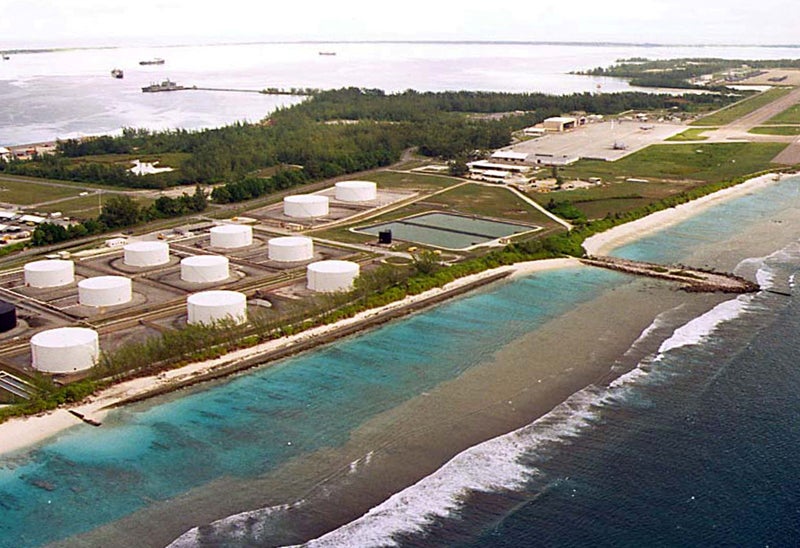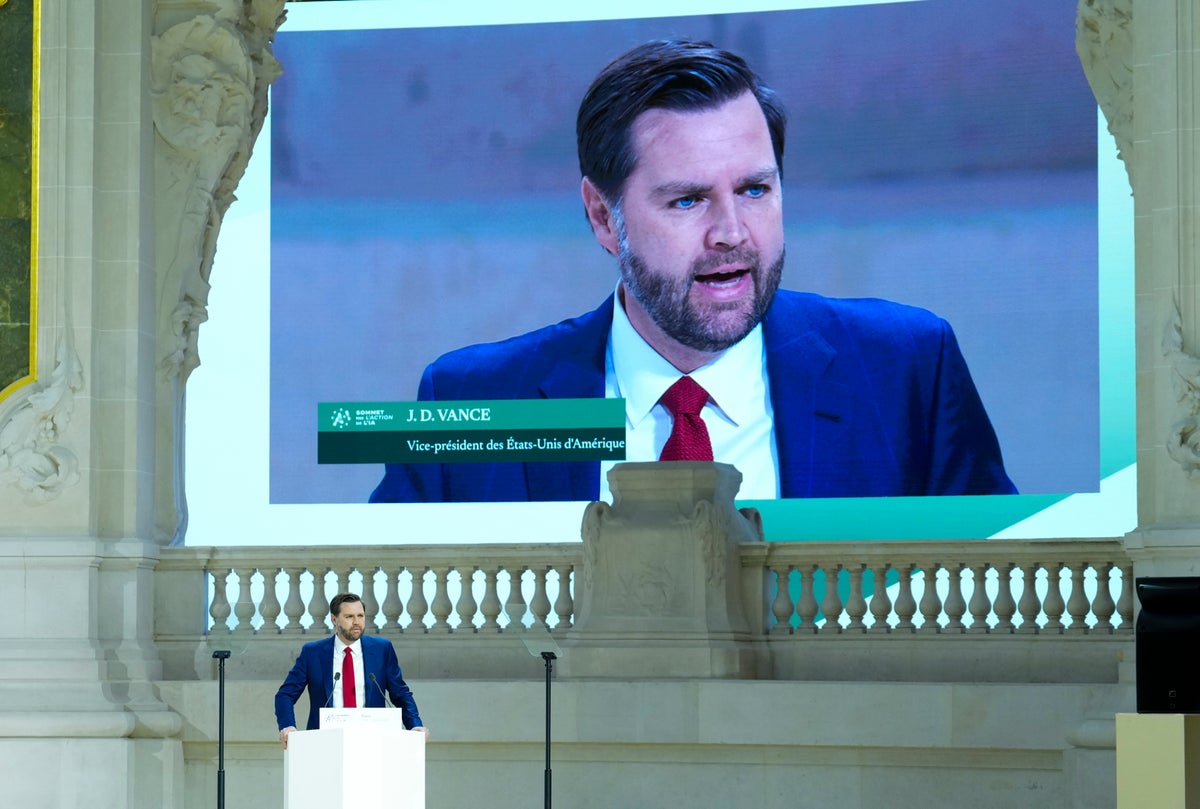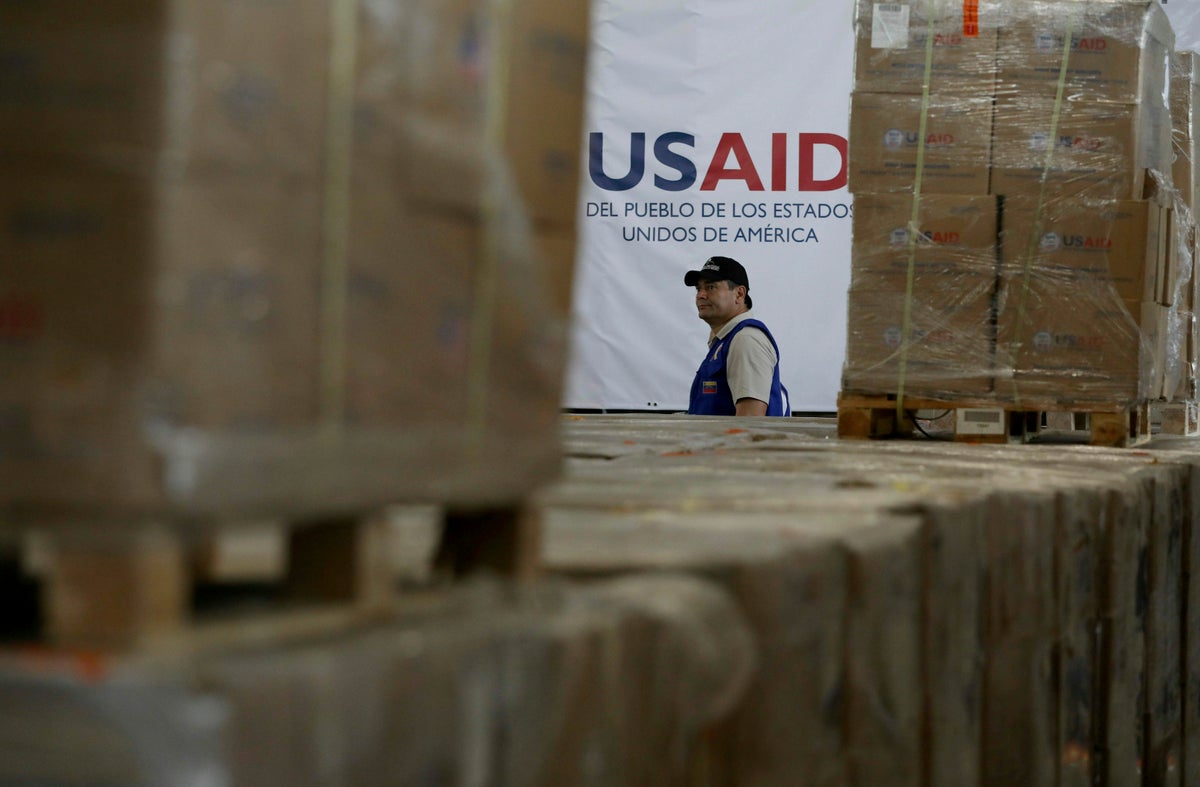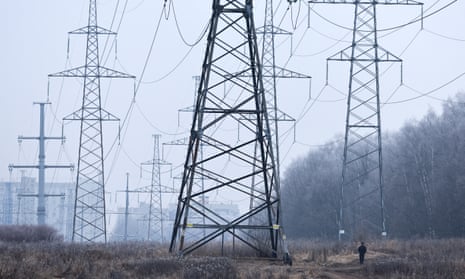Trump’s orders will cause hardship but it could allow small nations to face up to their dependence on a coercive oligarchy. For generations, many in the Caribbean grew up believing that the United States was the world’s great benefactor – a beacon of freedom, prosperity and boundless opportunity. Carefully cultivated through cinema, television, magazines, newspapers and radio, this perception reinforced the idea that the US was a land where hard work could secure a better life.
![[A brightly coloured shack lies in a swollen riverbed amid fallen palm trees after the bank collapsed ]](https://i.guim.co.uk/img/media/352acf792dae8ee6cae9145f70097cb144a0213f/0_250_5449_3269/master/5449.jpg?width=445&dpr=1&s=none&crop=none)
It was the dream destination for countless Caribbean migrants seeking to escape economic hardship and limited opportunities. But that illusion has crumbled, as historical distortions have become clear. The US has long mastered the arts of narrative control, of propaganda, historical revisionism and psychological manipulation. Beneath the veneer of benevolence is interventionism, economic coercion and exploitation – beginning with the genocide of Indigenous peoples across the Caribbean and the Americas, and continuing in wars, invasions and the destabilisation of nations across the world.
Today that same strategy persists – economic coercion, proxy wars and covert intelligence operations masked as noble interventions. The self-proclaimed “world police” is truly an oligarchy – a force only for elitist self-interest, a neocolonial empire where rich corporations take precedence over the average citizen’s welfare. Donald Trump’s return to the White House has starkly exposed this reality. Through a barrage of executive orders, his administration has set a new course on critical issues from climate change to trade relations, immigration and international alliances. For the Caribbean – so deeply intertwined with the US economically, politically and socially – there are profound implications.
Now, with the freeze of USAid – a foreign-aid programme that for decades underpinned US influence and its quid pro quo relationship with developing regions – the Caribbean and the aid-dependent regions of the wider global south face uncertainty. But the decision brings both jeopardy and opportunity. USAid funded health, education, infrastructure and disaster relief. However, many argue that the programme was more about maintaining economic and geopolitical dominance for a nation that has more than 750 military bases in at least 80 countries.
There have been mixed reactions from Caribbean leaders. The Jamaican prime minister, Andrew Holness, acknowledged that the loss of USAid funding presented immediate cashflow challenges but said his country’s long-term vision was one of reducing reliance on aid while strengthening its economic foundation and independence. Beyond the Caribbean, some view this as a necessary reckoning. The former Kenyan president Uhuru Kenyatta remarked at am east African summit in Mombasa: “I saw some people the other day crying that Trump has removed [funding] … Why are you crying? It is not your government; it is not your country.
“He has no reason to give you anything,” Kenyatta said of Trump. “You don’t pay taxes in America.”. Kenyatta’s sentiment was echoed by many who argue that foreign aid has for too long stifled true development in the global south while enabling corruption and inefficiency, and now we must build self-sustaining economies. This sentiment is echoed by anti-corruption agencies and activists who argue that aid can prop up corrupt elites more than it benefits ordinary citizens.
The Caribbean, a region already grappling with economic instability, will now have to navigate the freeze and possible permanent loss of funding for critical programmes. Many small island developing states rely on USAid for climate adaptation efforts, particularly as hurricanes and rising sea levels threaten their existence. Without this support, nations such as Antigua and Barbuda, Dominica and the Bahamas must seek alternative funding.
The US’s 47th president now appears content to pull up the drawbridge of one of the largest contributors to climate change mitigation efforts, abandoning those on the frontlines of a crisis they did not create. His rollback of climate commitments, including the withdrawal from global agreements, exacerbates the Caribbean’s vulnerability. Without USAid, crucial climate-resilience projects are left in limbo, just as hurricanes are growing stronger and more frequent.
Trump’s order to withdraw the US from the World Health Organization could weaken the Caribbean’s access to essential health resources and technical support. This is especially concerning in a region facing increasing health crises, including dengue and malaria outbreaks. Aid has played a significant role in healthcare, particularly in combating diseases such as HIV/Aids, and the US withdrawal leaves Caribbean public health systems – under pressure from brain drains and underfunding – facing potential collapse. Haiti, heavily reliant on aid, is particularly vulnerable.































